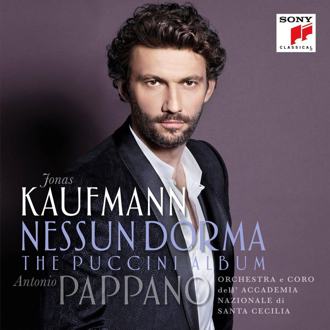
In the era of recorded music from roughly 1900 certain star names from
classical music and opera have become household ones. In the world of
classical music most often these have been conductors or singers with the
occasional instrumentalist. Notable early names included Toscanini on the
rostrum and the tenor Caruso. They were not alone, albeit were nearly
dominant in the popular mind going by sales of the 78 rpm shellac discs that
followed the primitive early cylinders. Among singers it has always seemed
that tenors dominated the sales charts. Caruso was followed by the likes and
fame of Gigli, Schipa, Tagliavini, and Corelli among others; not should we
forget Lanza although he never sang staged opera. As tenor popularity moved
on from records to film, and even football matches, so names such as Domingo
and Pavarotti became world renowned. Their fame extended well beyond the
normal realm of their operatic skill and specialism. In the present day,
after the retirement or death of the latter two, there had been something of
a vacuum until the spectacular emergence of the Bavarian Jonas Kaufmann who
seems to be in constant demand at the best operatic addresses along with
music spectaculars such as the BBC Promenade concerts.
Like Domingo,
Kaufmann has a defined stage persona and the macho physical attributes of a
super star. These attributes extend to a range that takes in the demanding
roles of German and Italian repertoire. In the present collection which
moves naturally from his Verdi collection (Sony 8867492002) where he showed
his skills among the early works through the composer's middle period
Rigoletto and Traviata all the way to his penultimate work, Otello, a role
that many tenors will not tackle because of vocal strain. Along the way in
that collection Kaufmann showed his respect for the composer’s intentions in
the conclusion to Celeste Aida, just as he does in the recent complete
recording of the work. That sensitivity and musicianship allied to his vocal
ability and prowess is also evident in this Puccini programme. This ranges
from Puccini's earliest works to his final one, Turandot, completed by
Alfano, with encouragement from Toscanini after the composer’s death.
The CD takes in the whole of the Puccini operatic oeuvre with the
exception of Suor Angelica in which there are no male roles. A minor regret
is that the repertoire is not covered in chronological order. It starts with
the composer’s first great success, Manon Lescaut, after the very modestly
received Le Villi and Edgar. After the lukewarm reception of his first two
operas, with his domestic life in a mess and unable to settle with the
chosen librettists, who were changed to the extent that none put his name to
the programme at the premiere, Puccini thought of emigration to America.
Being aware of these difficulties, and that La Scala was to premiere Verdi’s
last opera, Falstaff shortly after the scheduled premiere of Manon Lescaut,
his publisher Ricordi moved the venue of the premiere away from the Milan
highlights to Turin. Despite these last minute fears, the work was a
resounding success, the applause beginning after the brief tenor aria Tra
voi, belle in act 1 when Puccini had to appear on stage to acknowledge the
applause. At the end of the performance the composer and cast took thirty
curtain-calls. Manon Lescaut set Puccini on a secure financial and artistic
future and sets this CD off to a thrilling start. He is accompanied by
Kristine Opolais as Manon as he was in the performances of the work at
Covent Garden in June 2014, a performance transmitted to cinemas and
recently appearing on Blu-ray and DVD.
What is impressive in this
collection, as in the Verdi disc referred to, is how Kaufmann varies both
the modulation and tonal variety of his voice to match the character and
dramatic situation being portrayed. He effortlessly essays the big notes in
Nessun Dorma, in the written key and full voice (Tr.6), no downward
transposition for him. There's also a tender Non piangere, Liù! (Tr.15).
Similarly, his assumption of Ruggero from La Rondine (Tr.12) and Rinuccio
from Gianni Schicchi (Tr. 14). Personally I would also have preferred the
inclusion of Che gelida manina to the duet O soave fanciulla (Tr.7 from La
boheme). However, it seems that I cannot have both and there is nothing to
fault in the singing in the duet. At only sixty minutes I could also have
had e lucevan la stele from Tosca as well as the well-sung Recondita armonia
(Tr.8) with its excellent expression and phrasing, characteristics of
Kaufmann throughout this disc. Is that being greedy? Well if Sony could
mange 75 minutes on the Verdi album then this could have run for more. Yes,
I know Kaufmann has recorded those Puccini arias already, but not with the
Pappano on the rostrum - this conductor's contribution to this collection is
magnificent. Kristine Opolais is a worthy partner as she was in that cinema
transmission of Manon Lescaut, and in the DVD extracts (Chs. 4-6).
Is
the De Luxe version worth the extra money? My answer, with Christmas on the
horizon is: in for a penny in for a pound, or more. You won’t regret it down
the track. The views of Rome and the singer talking in perfect English (Chs
1-3) are more than worth the extra money.
|